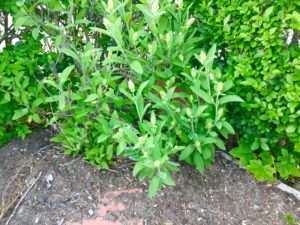’tis the gift to come down where we ought to be…
[For Simple Gifts complete lyrics and Liz Story’s version of this song, click Simple (gifts) Thanksgiving above]
One of the hardest parts of playing violin or singing in a chorus is learning how to find my place once I’ve lost it – something I found out during my high school years. It wasn’t so hard if I was playing the melody, or singing a familiar and simple piece of music; it was frustratingly difficult when I was responsible for the second violin part or singing alto in Handel’s Hallelujah Chorus. When I lost my place, the rest of the musicians didn’t stop to wait. The music continued on, with or without me.
To pick up my part as a player or singer, I had to listen to the other players and singers. Only then could I match their notes to my sheet music and find my own part. Then it was a matter of rejoining the other players and singers on the right note at the right tempo. I may have lost a few bars, but that was better than playing on when I knew I was lost. It was also better to keep quiet and rejoin when I could than to give up altogether and leave the rest of the performance the lesser for my absence.
Losing my place happens in the larger sense, too. My life falls out of sync with the rest of the world and I cannot find my way back without stopping to listen to others. Some time out when I’ve fallen behind or gone the wrong way is the only way to get to where I ought to be. I may have to let the world go along without me until I find my place, but that’s okay. I won’t continue playing against the rest of the world and I won’t give up altogether.
Rejoining, finding where I ought to be, is the gift that keeps my imperfect self an integral part of this beautiful symphony we call life. Perhaps it’s the same for you…




